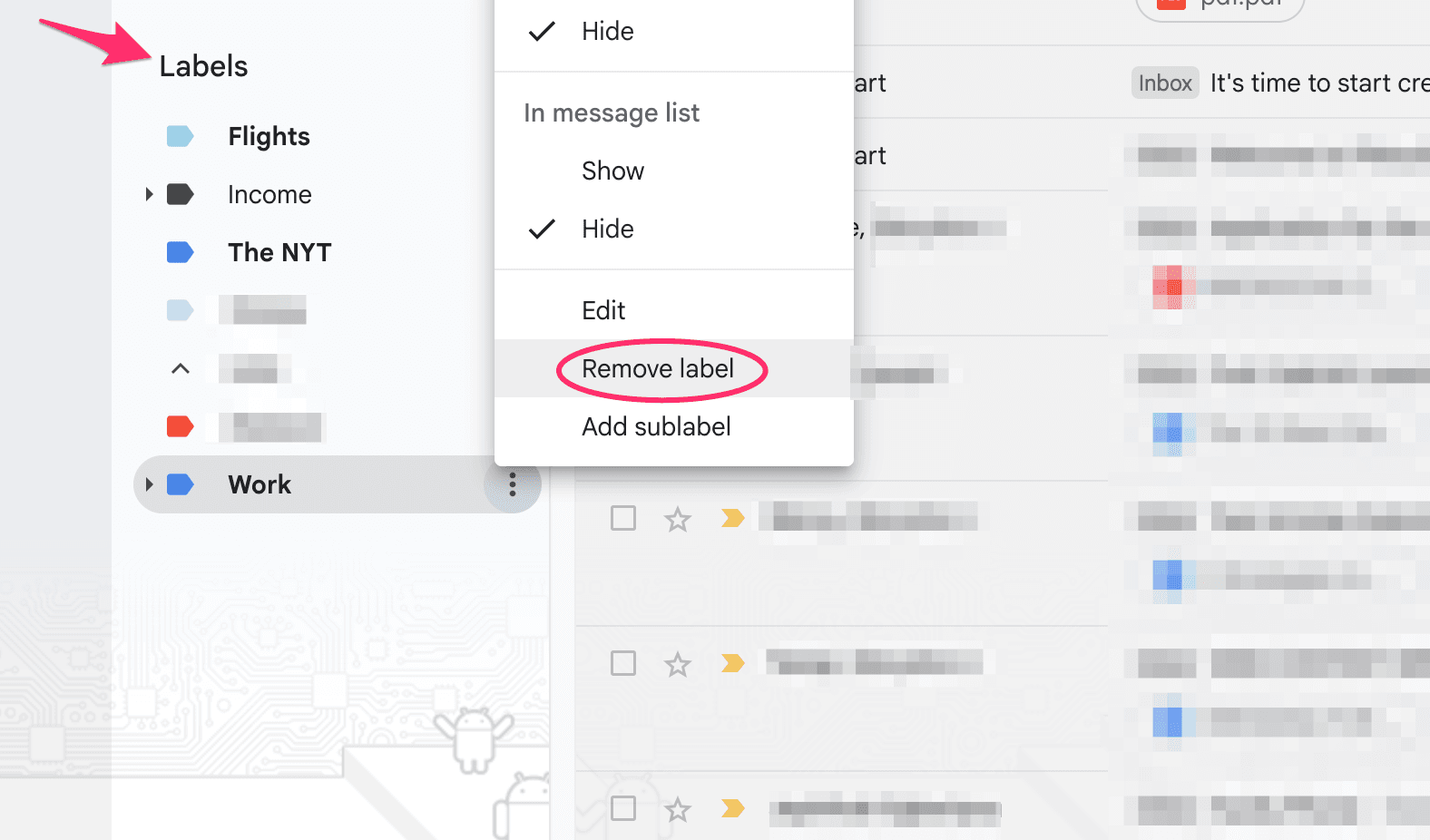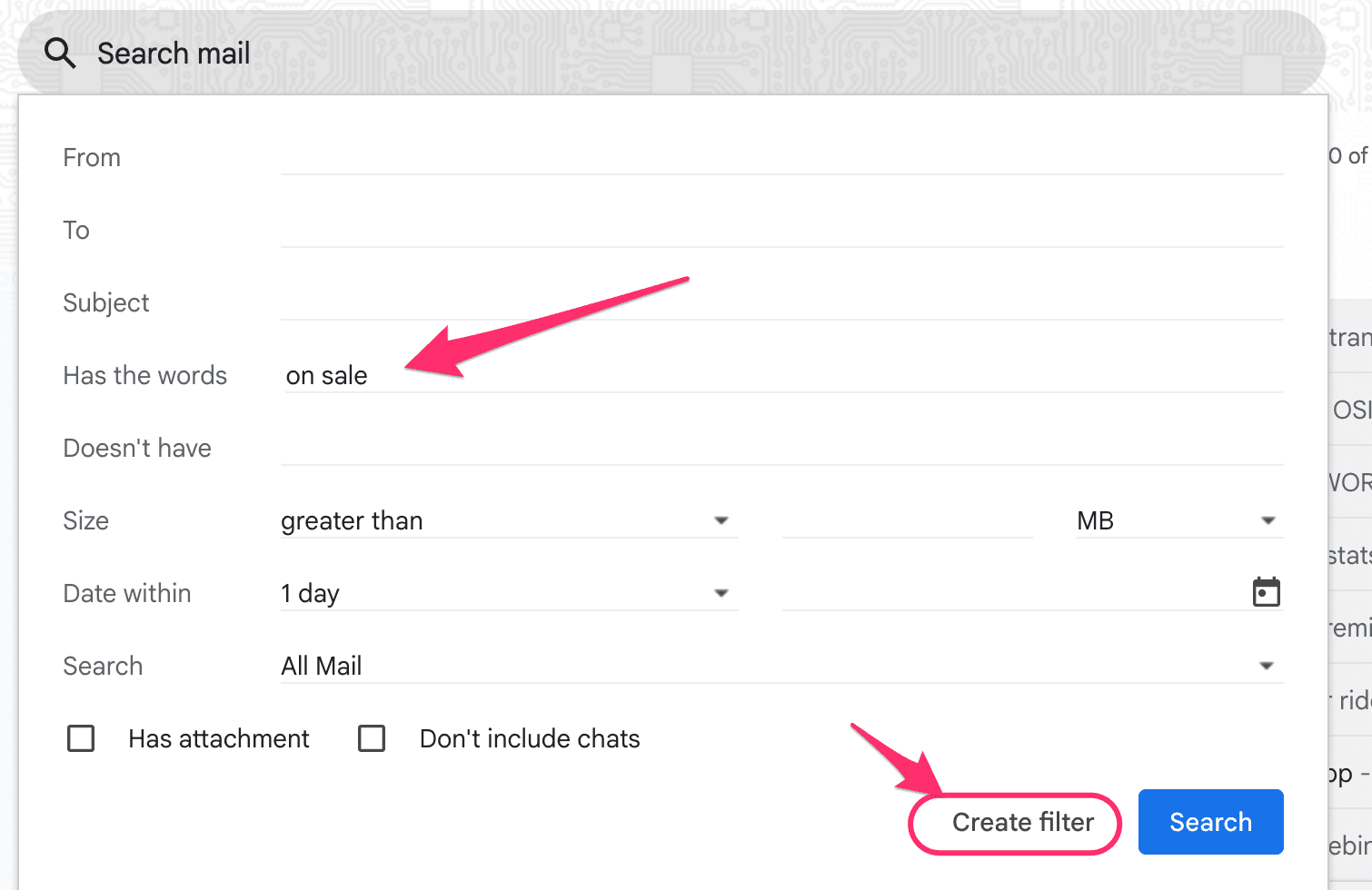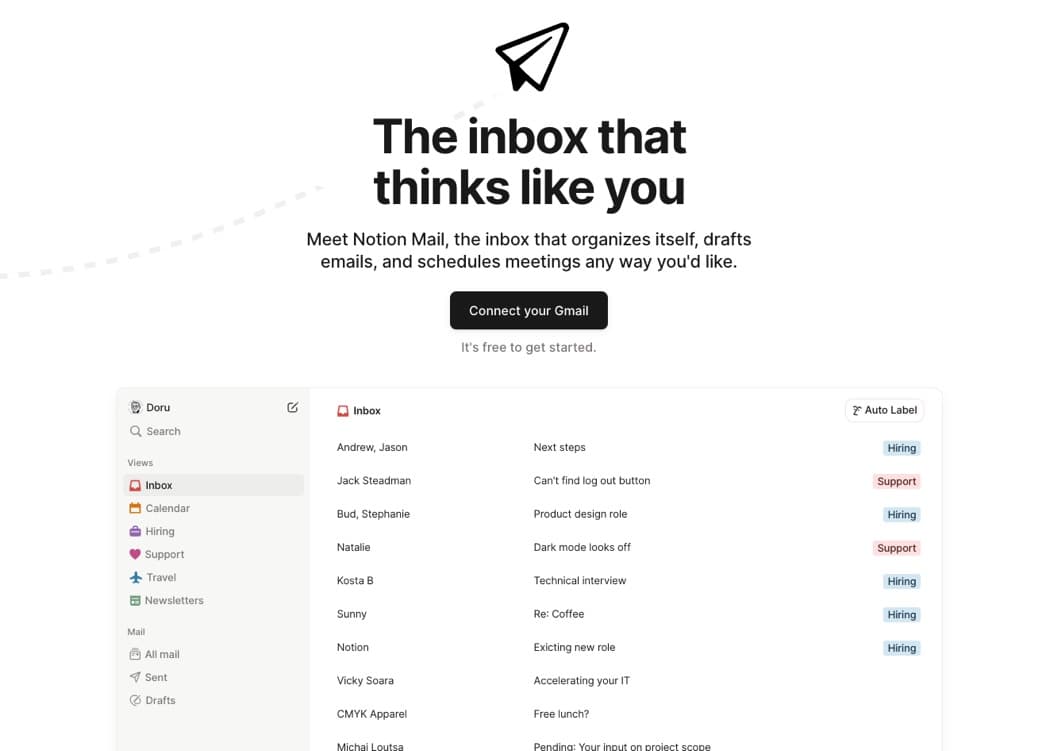How to delete labels in Gmail: A detailed guide for a cleaner inbox
Gmail labels keep your inbox organized, but as time passes and your needs change, you may find that some have become outdated.
Whether you’re wrapping up a project or have modified your workflow and want to declutter your label list, knowing how to remove labels helps keep your inbox tidy.
This guide explains how to delete labels in Gmail on desktop and mobile and covers other pro-efficiency inbox management practices.
How does deleting Gmail labels work?
Removing unnecessary labels is a straightforward step towards decluttering your organizational system and maintaining a tidy inbox. In this section, we’ll cover:
How to delete a label in Gmail on your desktop
How to delete labels in Gmail on your phone (iOS and Android)
How to delete multiple emails in a specific label
1. How to delete a label in Gmail on your desktop

Follow the steps below to delete a Gmail label on a desktop:
Open your Gmail account in a web browser (sign in if necessary)
Click on the settings icon at the top-right corner of the home screen
Select See all settings in the drop-down menu. A new window displaying Gmail’s settings will pop up
Click Labels at the top of the page
Scroll down to the label you want to delete and click remove
Confirm your action—click on the Delete option when prompted
The above steps can help you delete multiple labels quickly from your inbox. You can also delete a label directly from your inbox. Here’s how:
On the Gmail home screen, navigate to the Labels section on the left sidebar
On the list of labels, click on the ellipsis icon on the label you want to delete
Navigate to the Remove label option and select it.
Click Delete to accept

These methods will help you quickly remove labels from your Gmail inbox without deleting any messages. All emails previously under the deleted label can be found in the main inbox or All Mail folder.
2. How to delete a label in Gmail on iPhone and Android
If you want to quickly get rid of labels in Gmail via your mobile phone, the steps are slightly different. There are no options to delete labels on the Android app, but the iPhone app offers some assistance. There’s also a workaround for Android devices.
Follow these steps to delete labels on any of the two types of devices:
Android | iOS |
Open your mobile browser and sign in to Gmail Switch to desktop site on your browser to prevent Gmail from redirecting you to the mobile app Navigate to the Labels section Tap on the ellipsis icon on the label you wish to delete Select Remove label Tap Delete to complete the process | Open the Gmail app on your phone and sign in Tap on the Menu button in the top left corner Click on Settings and select the Gmail account you want to delete Scroll down and open Label settings Tap on the arrow icon next to the label you want to delete Hit Delete to confirm your action |
Note: The above steps will not delete the emails from your account either.
3. How to delete multiple emails in a specific label
If you’re thinking about starting on a clean slate but want to retain your label and maintain your existing workflow, consider deleting the emails within the label. Instead of deleting them individually, you can do it in bulk using these steps:
Step 1: Open the label you wish to modify by clicking the name on the left sidebar
Step 2: At the top of the email list, click the topmost check box to select the emails in the label

Step 3: The first 50 messages within the label will be selected. If you wish to delete all the emails in the label, click on the prompt beneath the row of icons to select all the conversations
Step 4: Once all the conversations are selected, hit the trash icon at the top of the list
This will delete all the emails in the label, leaving you with a clean label to start afresh.
Keep reading: Deleted an email accidentally? Find out if you can recover deleted emails.
How to edit labels in Gmail
If you want to change your label name, you don’t have to delete the label entirely. You can edit the name instead by taking these steps:
Navigate to the Labels section in the left sidebar
Click the ellipsis icon on the label you want to edit
Hit Edit
Make your desired modifications and then save the changes
How to create an auto-delete filter in Gmail
You can manage inbox clutter without having to multi-delete emails every time. All you need to do is create a delete filter, and the messages will end up in trash automatically.
This auto-delete option helps get rid of newsletters or updates you’re not ready to unsubscribe from but don’t want to clutter up your inbox. Here’s what to do to create your filter:
Step 1: Click on the ellipsis icon in the search bar at the top of your home screen

Step 2: In the panel that pops up, enter your preferred criteria to help Gmail filter the emails you want to auto-delete. These can include messages that are:
Within a particular label
From a specific sender
Sent to a recipient
Within a specific time range
Containing certain keywords
With attachments

Step 3: Once you’ve entered the criteria, click Create filter to proceed to the next page
Step 4: On the new page, click the action you want Gmail to take when it identifies an email matching your criteria. In this case, hit the Delete it option

Step 5: Click the Create filter button
💡Tip: Click Also apply filter to matching conversations to apply it to your existing emails, not just incoming messages.
Keep reading: Learn how to organize Gmail by sender and other relevant criteria.
Is there a better way to keep your inbox tidy?
For many users, managing an ever-increasing volume of emails manually and using basic Gmail filters is becoming increasingly time-consuming and less efficient.
This is one of the challenges modern Gmail clients and email services are stepping in to solve with the power of AI. Using AI for email management helps you handle clutter proactively, before it builds up.
AI-powered Gmail clients are designed to automate inbox management. They move beyond manually sorting/deleting emails or using complex filter rules to create labels. These platforms can power up your email features using simple, natural-language prompts to categorize and prioritize messages and even draft responses.
Moving to AI-driven clients like these can help keep your inbox tidy, reduce the stress associated with email management, and free up your time.
What to look for in an automated Gmail client
If you’re considering enhancing your workflow with advanced automation, ensure the email client you choose offers:
Intuitive AI capabilities that lets you handle tasks using simple prompts, not complex, manual rules.
Intelligent labeling that can automatically sort and label your emails and learn your preferences over time.
Focused views that offer the option to deeply customize your workflow view based on the criteria you decide.
Although automation is the most crucial factor, the email client should also offer ways to customize and fine-tune its settings to match your needs. One such platform worth exploring is Notion Mail.
Curate a cleaner inbox with Notion Mail
Notion Mail is a standalone email client designed exclusively for Gmail. It leverages the power of Notion’s AI to provide a more organized, efficient, and user-friendly inbox. It offers a cleaner, streamlined interface with intelligent automation to help you manage your emails with ease.

Notion Mail uses AI to automate various time-consuming tasks associated with traditional email management. Instead of manually sorting messages into folders or applying labels, you can prompt the AI Autopilot feature with a simple sentence like Organize emails from X client into the ‘X Client’ label. The AI tool then automatically sorts incoming emails from X and applies the designated label, reducing the time spent on tedious sorting.
Notion Mail also empowers you to create custom views of your inbox, so you can prioritize and filter emails based on specific criteria related to your workflow. Furthermore, you can compose emails and generate context-rich smart replies using Notion Mail’s AI.
In addition to these features, Notion Mail provides:
Automated scheduling with simple slash commands
Follow-up reminders to keep essential communications going
Email summaries for lengthy threads
Keyboard shortcuts for faster inbox navigation
Sign up for Notion Mail
To get started with Notion Mail, visit the signup page and connect your Google or Gmail account. The platform is free to use and available on Windows, Android, and iOS devices. Once you sign up, you can immediately start leveraging the platform’s features to organize your email, but if you want to maximize its AI automation capabilities, get the .
Bonus read: Level up your productivity with our helpful Gmail management guides:
